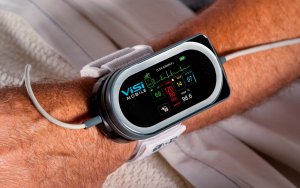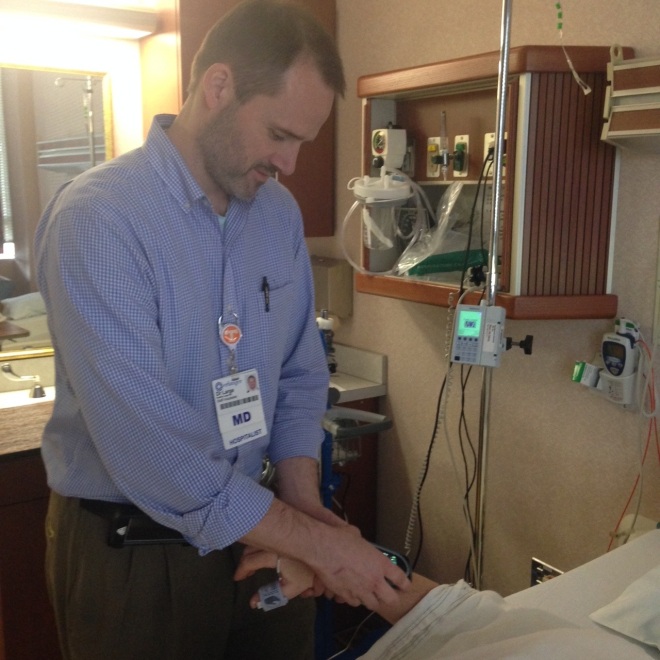Erlanger Health System has launched the region’s first wireless monitoring system for patients at Erlanger East Hospital. Known as the ViSi Mobile System by Sotera Wireless, the wearable devices transmit continuous measurements of patient vital signs and allow patients to move freely without being attached to traditional monitoring systems that limit mobility.
“Erlanger is committed to patient safety, and the ViSi wireless system supports our commitment to improving safety for our patients. The devices allow us to continuously monitor vital signs without disturbing the patient – and a patient’s peace of mind can enhance the overall healing experience,” said Phillip E. Jackson, DSL, FACHE, CEO of Erlanger East Hospital and Vice President of the Erlanger Health System.
The ViSi Mobile System is the first body-worn monitor to noninvasively measure all core vital signs on a highly accurate, beat-to-beat basis. Patients can get out of bed, walk around, and undergo physical therapy – all while remaining connected to clinicians. The wireless devices continuously measure blood pressure without the use of a cuff and continuously monitor heart or pulse rate, electrocardiogram (ECG) or heart rhythm, blood oxygenation, respiration rate and skin temperature with the accuracy of monitors typically found in intensive care units.
The device, worn on the patient’s wrist, transmits vital sign data to clinicians on-site or remotely. The measurements can be seen not only on the patient’s wrist device, but also on screens positioned at nursing stations and the emergency department at Erlanger East Hospital.
Typically, clinicians check patient vital signs during routine rounds. The intermittent checks can disturb patients and only provide snapshots of vital sign data, rather than continuous information. Now, clinicians at Erlanger East Hospital can use the continuous data stream to identify early signs of deterioration, which could help prevent adverse events. Additionally, if a patient’s vital signs move beyond selected ranges, the system’s alarm system will warn clinicians, so the appropriate intervention can be taken.








